Education
Introduction
Education is a systematic process of acquiring knowledge and skills necessary for personal growth and development. The term 'education' derives from the Latin word 'educare' which means 'to bring up' or 'to lead forth'. It is a lifelong process that facilitates the acquisition of competencies and values1(https://www.britannica.com/topic/education).
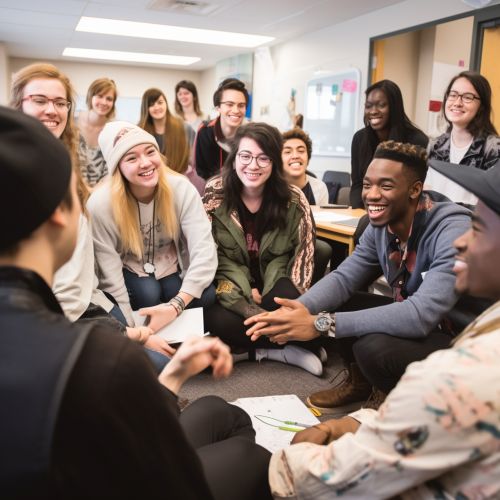
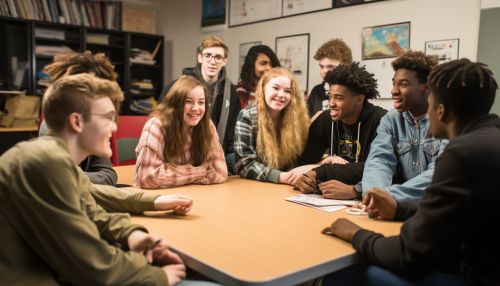
History of Education
The history of education is as old as human history itself. In prehistoric times, adults trained the young in the knowledge and skills deemed necessary in their society. In pre-literate societies, this was achieved orally and through imitation. Story-telling passed knowledge, values, and skills from one generation to the next. As cultures began to extend their knowledge beyond skills that could be readily learned through imitation, formal education developed2(https://www.britannica.com/topic/history-of-education).

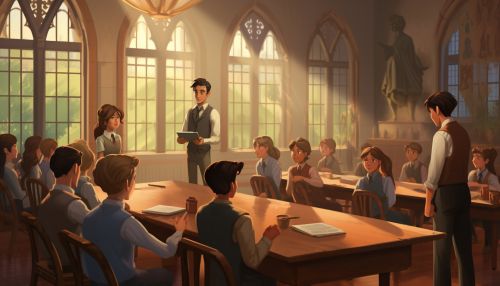
Ancient Civilizations
In ancient civilizations, education was predominantly oriented towards the practical skills necessary for survival. In ancient Egypt, instruction in life skills was conducted in a house of life or a house of books. In ancient Greece, education was divided into two main categories: physical training for military service and music and poetry for cultivating the soul3(https://www.britannica.com/topic/education/Ancient-civilizations).
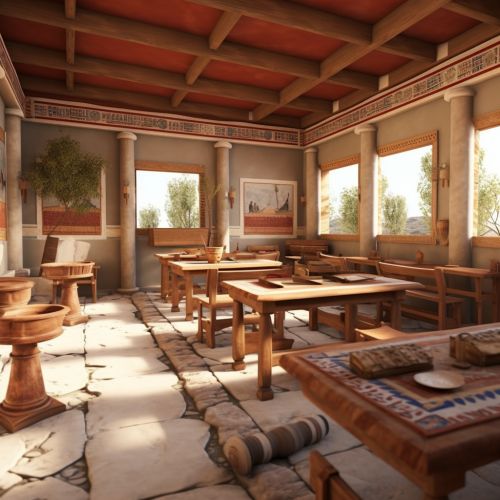
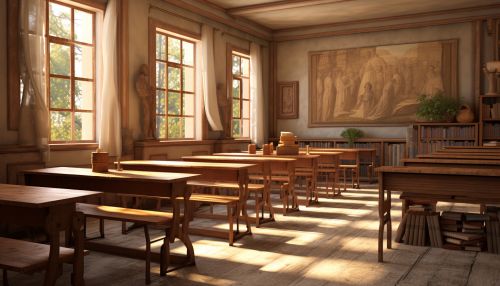
Middle Ages to Modern Era
During the Middle Ages, education was primarily provided by the church. Monasteries and cathedral schools were centers of learning. The Renaissance period saw a renewed interest in classical learning and the establishment of universities. The modern era brought significant changes in the education system with the introduction of compulsory education, progressive education, and the development of modern universities4(https://www.britannica.com/topic/education/The-history-of-Western-education).
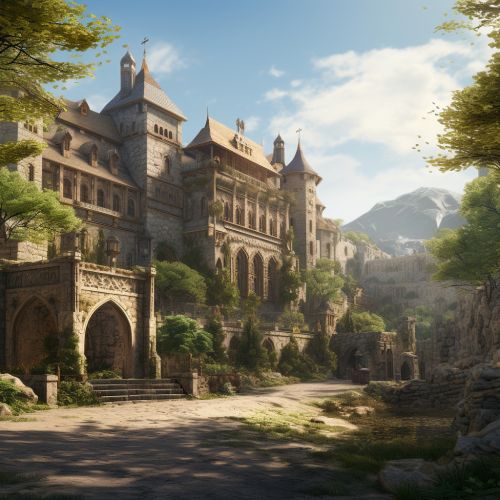
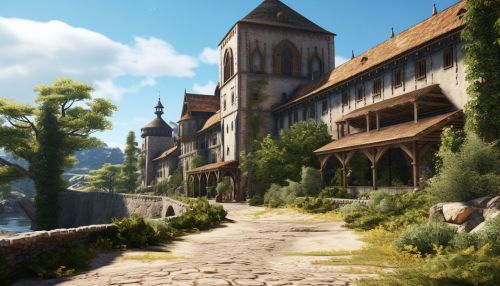
Types of Education
Education can be categorized into formal, informal, and non-formal education based on the delivery method and purpose of learning.
Formal Education
Formal education is a structured and standardized form of learning. It involves full-time education at school or university, leading to recognized qualifications and credentials. Formal education is sequential and hierarchically structured from primary to secondary and higher education5(https://www.britannica.com/topic/education/Primary-education).

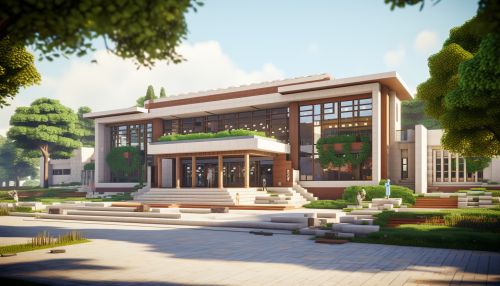
Informal Education
Informal education refers to learning experiences that occur in daily life, such as learning through work, play, and social interaction. It is often spontaneous and not structured or regulated by an institution6(https://www.britannica.com/topic/education/Informal-education).
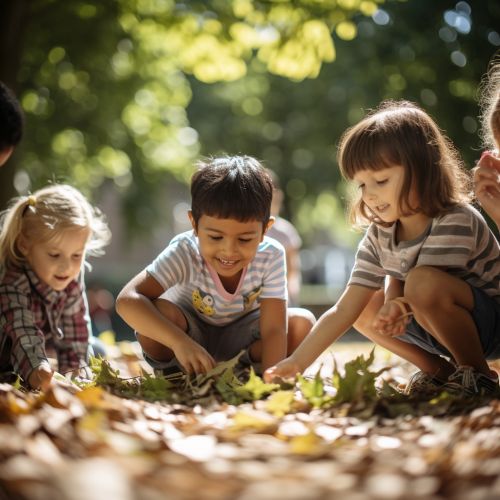
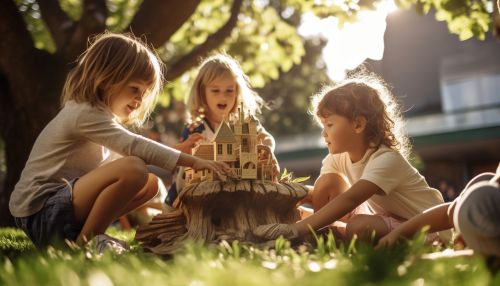
Non-formal Education
Non-formal education includes adult basic education, adult literacy education, and school equivalency preparation. It does not lead to formal certification, but it provides necessary skills and knowledge for employment, social development, and personal satisfaction7(https://www.britannica.com/topic/education/Nonformal-education).
Role of Education
Education plays a crucial role in shaping an individual's career, personality, and mental growth. It also has a significant impact on society as it fosters economic and social development.
Individual Development
Education is a critical tool for individual development. It enhances one's knowledge, skills, and develops personality and attitude. In this sense, education is an essential means of empowering individuals with the knowledge, skills, and self-confidence necessary to fully participate in the development process8(https://www.britannica.com/topic/education/Social-reconstruction).
Societal Development
Education has a profound impact on society. It is a means of fostering social cohesion, reducing social disparities, promoting national identity, and instilling civic values. Education also contributes to economic growth by enhancing productivity and promoting innovation and entrepreneurship9(https://www.britannica.com/topic/education/Education-and-personal-growth).
Challenges in Education
Despite the importance of education, there are numerous challenges in the education sector, including access to quality education, gender disparities, lack of resources, and outdated curriculum.
Access to Quality Education
Access to quality education remains a significant challenge, particularly in developing countries. Many children and adults lack access to basic education due to poverty, conflict, and other social barriers10(https://www.britannica.com/topic/education/Problems-and-issues).
Gender Disparities
Gender disparities in education persist in many parts of the world. Girls often have lower access to education than boys due to cultural norms, early marriages, and poverty11(https://www.britannica.com/topic/education/Gender-differences).
Lack of Resources
Many schools, particularly in rural areas, lack basic facilities such as classrooms, libraries, and science laboratories. This lack of resources hinders the provision of quality education12(https://www.britannica.com/topic/education/Problems-and-issues).
Outdated Curriculum
The curriculum in many schools is outdated and does not equip students with the skills needed in the 21st century. There is a need for curriculum reform to incorporate digital literacy, critical thinking, and problem-solving skills13(https://www.britannica.com/topic/education/Curriculum-reform).
Conclusion
Education is a fundamental human right and an essential tool for achieving the goals of equality, development, and peace. It is a powerful driver of development and one of the strongest instruments for reducing poverty and improving health, gender equality, peace, and stability. Despite the challenges, significant progress has been made in increasing access to education at all levels and increasing enrolment rates in schools, particularly for women and girls.
See Also
References
1. Britannica: Education 2. Britannica: History of Education 3. Britannica: Ancient Civilizations 4. Britannica: Middle Ages to Modern Era 5. Britannica: Formal Education 6. Britannica: Informal Education 7. Britannica: Non-formal Education 8. Britannica: Individual Development 9. Britannica: Societal Development 10. Britannica: Access to Quality Education 11. Britannica: Gender Disparities 12. Britannica: Lack of Resources 13. Britannica: Outdated Curriculum
